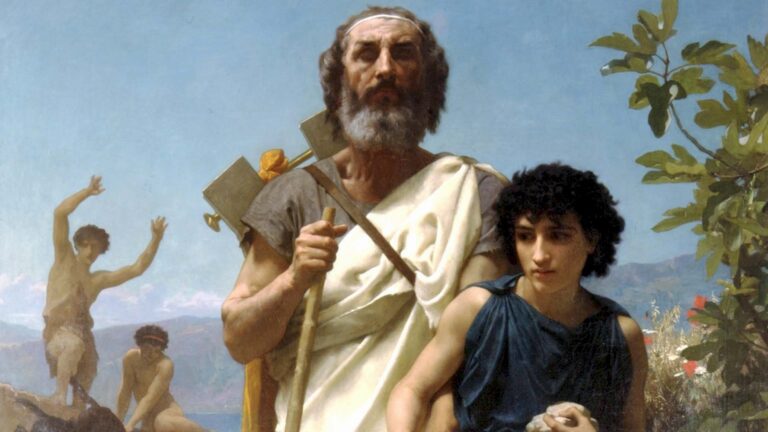The Greek classics—epic poems, tragedies, and philosophical works—have long served as foundational texts for Western thought. These works are more than tales of gods and heroes; they are reflections on the human condition. For men, especially, these stories offer enduring moral lessons on honor, humility, courage, restraint, and the search for meaning in a chaotic world. Here are some of the key moral insights from Greek classics that remain profoundly relevant today.
1. Honor and Responsibility – The Iliad
In The Iliad, Homer presents a world where personal honor and social duty are tightly bound. Achilles, the mightiest Greek warrior, withdraws from battle over a perceived slight to his honor, but the consequences of his pride are devastating. The loss of his friend Patroclus brings him back to the fight, not for glory, but to avenge a loved one and fulfill a larger duty.
Lesson: True masculinity is not about ego or dominance, but about channeling strength into responsibility. Men are called to rise above personal slights and to protect what is greater than themselves—whether that be family, community, or principle.
2. Hubris and Humility – Oedipus Rex
Sophocles’ Oedipus Rex is a powerful warning against arrogance. Oedipus, a man of great intellect and will, believes he can outrun fate. But his relentless pursuit of truth leads to the devastating revelation that he has fulfilled the very prophecy he tried to avoid.
Lesson: Intelligence and power are not enough. The Greek classics teach that unchecked pride—hubris—often leads to downfall. Men must temper ambition with humility, acknowledging that wisdom includes recognizing one’s limits.
3. Self-Mastery – The Odyssey
In The Odyssey, Odysseus is not just a hero for his cunning or strength, but for his perseverance and restraint. He resists the sirens’ call, survives temptation on Calypso’s island, and endures a long journey home. His trials are not just external—they are internal battles of desire, loyalty, and identity.
Lesson: A central theme of manhood in Greek literature is sophrosyne—self-control or moderation. To be a man is to master one’s impulses, to stay faithful to one’s goals and loved ones, and to resist the easy path when it compromises integrity.
4. Moral Courage – Antigone
In Antigone, Sophocles gives us a heroine who defies a king’s decree to honor a higher moral law. While the play centers on Antigone, it challenges men, especially leaders like Creon, to reconsider the nature of justice and authority.
Lesson: Power does not equal righteousness. Men in positions of authority must have the courage to admit when they are wrong and to listen to conscience over command. Moral courage sometimes means standing alone—but never standing idle in the face of injustice.
5. The Examined Life – Socrates in Plato’s Dialogues
Socrates, as portrayed by Plato, insists that “the unexamined life is not worth living.” His dialogues reveal a man committed not to winning arguments but to seeking truth. He questions everything—from the nature of virtue to the foundations of society.
Lesson: Intellectual humility and curiosity are virtues. Manhood isn’t just action; it’s reflection. The Greek classics encourage men to cultivate inner life, to think deeply about their values, and to seek wisdom over mere knowledge.
Final Thoughts
The heroes of the Greek classics were flawed, mortal, and often misguided—but that’s what makes them powerful moral teachers. Their stories are mirrors through which we can examine our own lives. For modern men navigating a world of shifting expectations, these ancient texts offer timeless guidance: to live with honor, lead with humility, and pursue wisdom with courage.
The Greek classics don’t give us perfect men—they give us human ones. And in their struggles, we find the beginnings of our own growth.



Comments are closed.